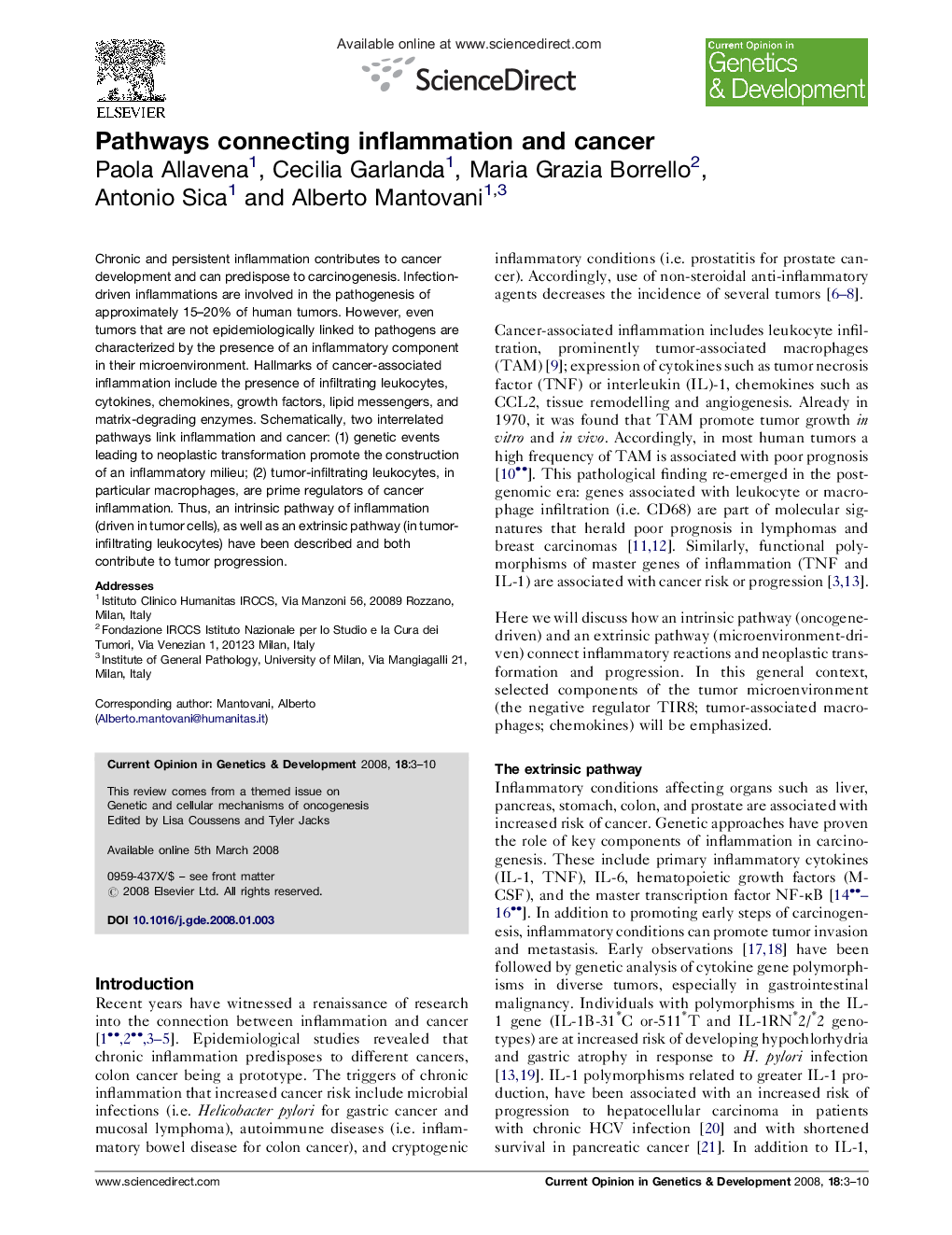| Article ID | Journal | Published Year | Pages | File Type |
|---|---|---|---|---|
| 2785123 | Current Opinion in Genetics & Development | 2008 | 8 Pages |
Chronic and persistent inflammation contributes to cancer development and can predispose to carcinogenesis. Infection-driven inflammations are involved in the pathogenesis of approximately 15–20% of human tumors. However, even tumors that are not epidemiologically linked to pathogens are characterized by the presence of an inflammatory component in their microenvironment. Hallmarks of cancer-associated inflammation include the presence of infiltrating leukocytes, cytokines, chemokines, growth factors, lipid messengers, and matrix-degrading enzymes. Schematically, two interrelated pathways link inflammation and cancer: (1) genetic events leading to neoplastic transformation promote the construction of an inflammatory milieu; (2) tumor-infiltrating leukocytes, in particular macrophages, are prime regulators of cancer inflammation. Thus, an intrinsic pathway of inflammation (driven in tumor cells), as well as an extrinsic pathway (in tumor-infiltrating leukocytes) have been described and both contribute to tumor progression.
